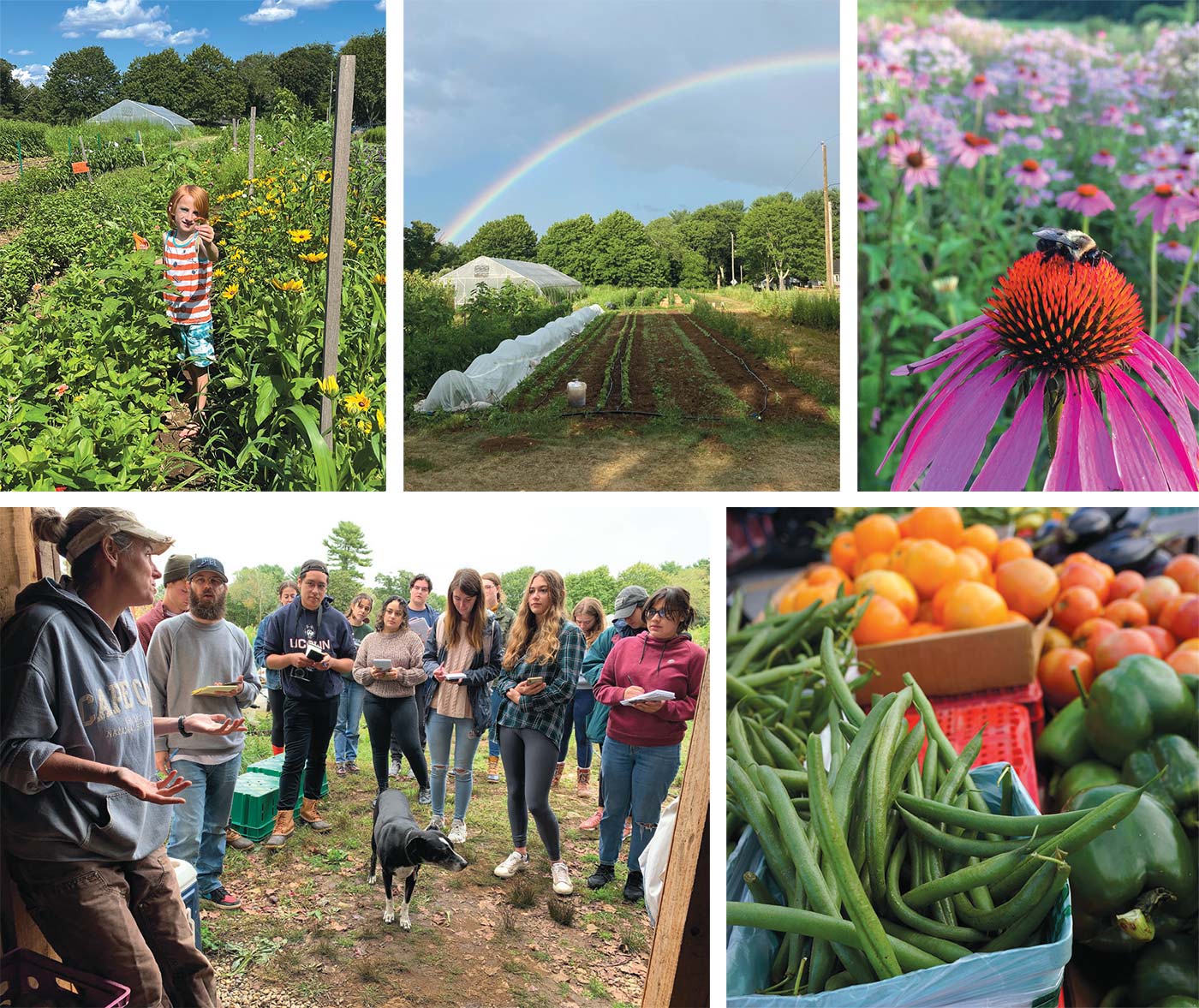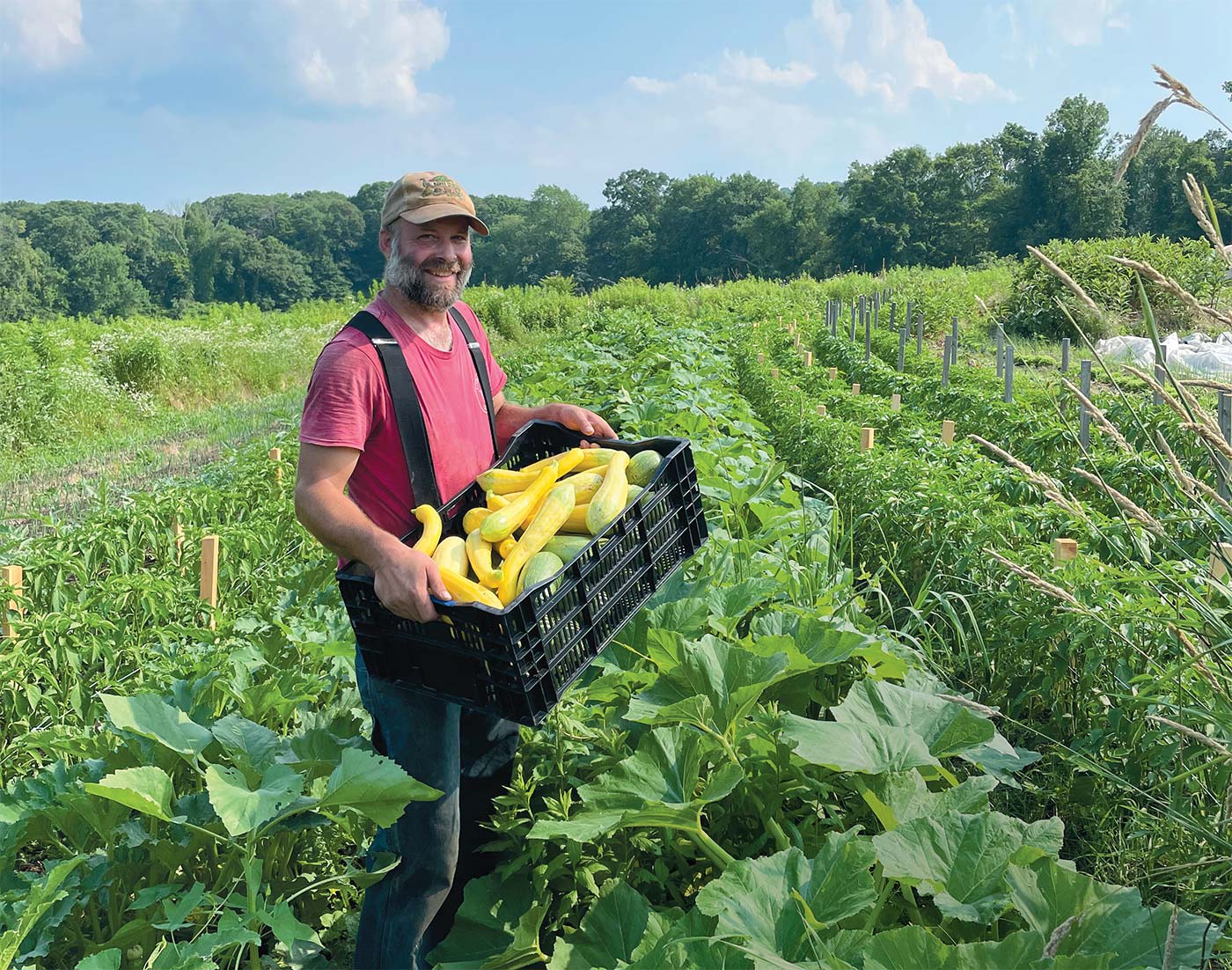CSA’s (Community Supported Agriculture) Benefit Everyone Involved!
In the world of food and farms, CSA stands for Community Supported Agriculture. e concept—connecting consumers directly to producers in the food system--became popular in the United States in the 1980s. Basically, a subscription service for agriculture, it’s a way of sharing the risk of food production with local farmers. In practice, there’s more than mere economic benefit. CSAs improve the health and well-being of everyone involved. While the community supports farms in a CSA partnership, the reverse is also true. Farms sustain the community.
CSA programs are as varied as the local farms that offer them. Some specialize in produce or meat or flowers. Others offer a little of everything. Some CSAs offer add-ons like baked goods, pre-made meals and other products made on-site with home-grown ingredients. Farming practices range from organic to regenerative to traditional. According to Grown Connected’s Communications Coordinator Becca Toms, eastern Connecticut has over 30 CSA programs. An extensive list of farms and their CSA offerings is updated on the nonprofit’s website and in print every spring.
CSAs offer consumers the freshest food with the lowest carbon footprint, plus unusual varieties you won’t find in grocery stores. CSA member Al Spaulding loves learning about new produce and planning meals he never would’ve tried before joining Cobblestone Farm’s CSA in Mansfield Center. “We never knew veggies could taste this good,” he says. “The only negative is nobody in my family is eager to eat supermarket vegetables anymore. They don’t even compare to the freshness of CSA produce.”
Cobblestone Farm owner Diane Dorfer grows a wide variety of produce, herbs, and flowers. Her traditional CSA serves 125 members annually for an 18 to 26-week growing season. Although not certified, her farm follows organic growing practices. CSA members pay a subscription fee based on the number of weeks, farm share size, and add-on options. They come to the farm every week to choose veggies plus enjoy pick-your-own options that vary with the season.
Cobblestone Farm’s CSA is essential to Diane’s financial stability. “It is a reliable source of income and a reliable outlet for our produce,” she says. “Hustling to sell through farmers markets and wholesale accounts can be stressful; it can be hard to anticipate demand from week-to-week,” she says. “Conversely, I have a very good sense of how many veggies I’ll need for the CSA and can grow accordingly.”
“CSAs are a partnership between the customer and their farmer,” says Katherine Hermonot of Ekonk Hill Turkey Farm in Sterling. “Members are our most valued customer because their CSA purchase is an investment in our future. By making a commitment to eat locally, members allow us to plan ahead so we know what to raise each year. By paying for it ahead of time, they are investing in our farm during a slow season.”
“CSAs reduce food miles, support the local economy, and give people a greater connection to their food— their value is immense.” Katherine Hermonot, Ekonk Hill Turkey Farm

(clockwise) picking calendula fresh from the field at Cobblestone Farm; growing space at Cobblestone Farm CSA under a rainbow; bumblebee resting on a coneflower; green beans, tomatoes, peppers and other veggies ready to be packed into a CSA share; Diane Dorfer of Cobblestone Farm CSA with local college students
Ekonk Hill Turkey Farm is a multi-generation family farm locally famous for growing pasture raised turkeys—about 3,000 a year. It offers a six or 12-month poultry/meat CSA in which members can choose a Chicken Share, a Poultry Share (whole chickens and turkey parts/ground), or a Meat Share (chicken, turkey, beef, pork, lamb, and goat in various cuts, sausages, and roasts). Each share is 18-20 pounds per monthly pickup and includes a fresh Thanksgiving turkey. All animals are pasture raised and their beef is 100% grass fed.
“Seeing that we do all things turkey here, we have many turkey options that other local farms don’t,” says Katherine. Ekonk Hill’s customizable farm share is also fairly unique. Rather than being locked into a subscription’s set products, members pick options for at least half their farm share. “At peak inventory we offer over fifteen sausages suiting many tastes, plus several types of bacon. Some families enjoy meats like lamb, while others may not. Our goal is for members to enjoy what they get, not for it to sit in their freezer because it didn’t suit their needs.”
Unbound Glory Farm in Pomfret Center offers a non-traditional CSA, in which you can order exactly what you want and pay as you go. Using high tunnels for year-round growing, they also have an unusually long CSA season, from April through Christmas. Unbound Glory offers a wide variety of produce, native flowers (that double as pollinator plants), plus rare items like heirloom Italian and French greens. A delicious bonus for CSA members (not available to the public) is Farm Pizza Days, featuring made-to-order wood fired pizza using organic flour, local cheese and cured meats, and their own fresh produce.
Unbound Glory specializes in Regenerative Agriculture practices, including no-till, cover cropping and zero chemicals, conventional or organic. “Our practices focus on building healthy soils, increasing biodiversity, and working with natural systems to maximize plant health,” says owner/farmer Courtney Squire. “Our CSA is a choose-your-own-adventure kind of program, with a convenient drive-through pickup system,” she explains. They send a weekly email so participants can order what they want. Availability is first ordered, first served. There is no obligation to participate, so you don't have to worry about vacations or missing a pickup.
“We have lots of folks who rely on us all season for their veggies and come weekly, some who come twice a month and stock up, and others who are home gardeners and participate when their gardens are not producing,” says Courtney. Unbound Glory’s CSA model also helps reduce waste, since they pick to order. “Some people stick with the staples of the season (lettuce, carrots, tomatoes, squash), and others love to embrace expanding their culinary horizons at their own pace.”
One of the greatest CSA benefits to both farmer and consumer is community. Weekly pickup at Cobblestone Farm allows neighbors to engage with the farm and each other. “I’ve overheard members share recipes while picking cherry tomatoes, catch up with the parents of their kids’ long-since-graduated classmates, and reunite with old colleagues,” says Diane. “It is quite sweet. I think the social aspect of the CSA is especially important for the parents of young children and retirees – stages of life that can be socially isolating.”
Small scale farming is a risky business and a labor of love that thrives on connection and compassion. “In the physical world, friends, neighbors, CSA members, fellow farmers, and other locally owned businesses have helped our farm in so many ways,” says Diane. She recalls how a microburst blew down rows of mature tomato plants one year. “Folks came to the rescue with donated stakes and helping hands to right the plants,” she says. “CSA members are so important for providing emotional support. Overall, I love my job, but some weeks can be demoralizing. So many CSA folks have given a kind word over the years, which really helps keep me going.”
LEARN MORE:
Cobblestone Farm
Mansfield Center
www.cobblestonefarmcsa.com
Unbound Glory Farm
Pomfret Center
www.unboundgloryfarm.com
Ekonk Hill Farm
Moosup
www.ekonkhillturkeyfarm.com
To find a CSA near you, scroll down on www.grownconnected.org/findfarms for an interactive map.





